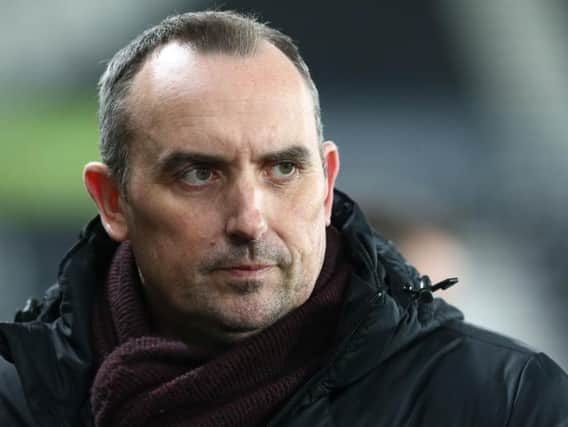Thomas: Cobblers would need bottom two budget to break-even


Chairman Kelvin Thomas says Cobblers' budget would need to be 'in the bottom two of each division' just for the club to break-even every year.
The financial sustainability of football clubs has been a hot topic of debate in recent weeks following the impact of COVID and the release of Project Big Picture proposals.
Advertisement
Hide AdAdvertisement
Hide AdCurrently, the vast majority of EFL clubs lose money and have to rely on owner funding to get by. Northampton themselves lost £1.67million in 2018/19, down from £2.2 million the previous year.
"It's a delicate subject but what COVID has highlighted is that because football clubs tend not to be profit-making businesses, you have no retained earnings," said Thomas. "A typical business would make money over a period of time and have a certain amount of money at the end of a year and you can use that however you want to.
"But football clubs typically do not have that and there are no retained earnings, and then you get hit with something like this (the pandemic) and you completely lose your ability to generate income, which makes it very difficult.
"If you compare it to a company like Nike for example, you still have to produce the shoes, you have to pay all the staff, keep the lights on and keep the shop open, but you're not allowed to sell any of the shoes. That's what it's currently like for football clubs.
Advertisement
Hide AdAdvertisement
Hide Ad"It's difficult and it's challenging and that's why we need some help along the way, but it also shows why it's so important to have financial reform. Reliance on owner funding needs to go away because otherwise, we'll eventually run out of qualified owners."
Project Big Picture has, for now at least, been put on the back burner by Premier League clubs but Thomas believes radical reform is urgently required to stop more clubs following Bury and Macclesfield and going out of business.
He continued: “If we can get income that matches our salary cap and then our commercial revenue and our ticket revenue pays for all the other expenses, we’d be financially sustainable and that would be a great place to be.
“If you look at any club at the moment, you are the wrong side of the equation. Project Big Picture would get us the right side of the equation as EFL clubs instead of a reliance on owner funding.
Advertisement
Hide AdAdvertisement
Hide Ad“For us to even compete at League One or League Two level, we lose money. The club could break-even every year but we would have a budget that would be in the bottom two of each division and I’m not sure that’s what fans want. It’s a conundrum but the salary cap does at least give us some protection.”
Should a proposal like Project Big Picture be approved and therefore lower-league clubs receive more income, how would that money be spent?
"Another detail of Project Big Picture was that there would be additional money available for improving the infrastructure of clubs," added Thomas.
"We did have a training ground plan pre-COVID that James (Whiting) and the team had been working on but the pandemic has slowed that down and we'll revisit when we get through these hurdles.
Advertisement
Hide AdAdvertisement
Hide Ad"That's the type of thing we're talking about. Most owners have money they want to invest in their football clubs but at the moment it's very hard to justify significant spending money on infrastructure when you've also got to cover costs just to put players on the pitch.
"That's the key thing for a lot of clubs. Project Big Picture would allow owners to have additional money and they wouldn't have to spend money purely to pay bills and to keep the club going.
"That sort of stuff would be taken care of through the income they get in and then they can use their own funds for infrastructure, training grounds, improving stadiums and things like that."
Comment Guidelines
National World encourages reader discussion on our stories. User feedback, insights and back-and-forth exchanges add a rich layer of context to reporting. Please review our Community Guidelines before commenting.